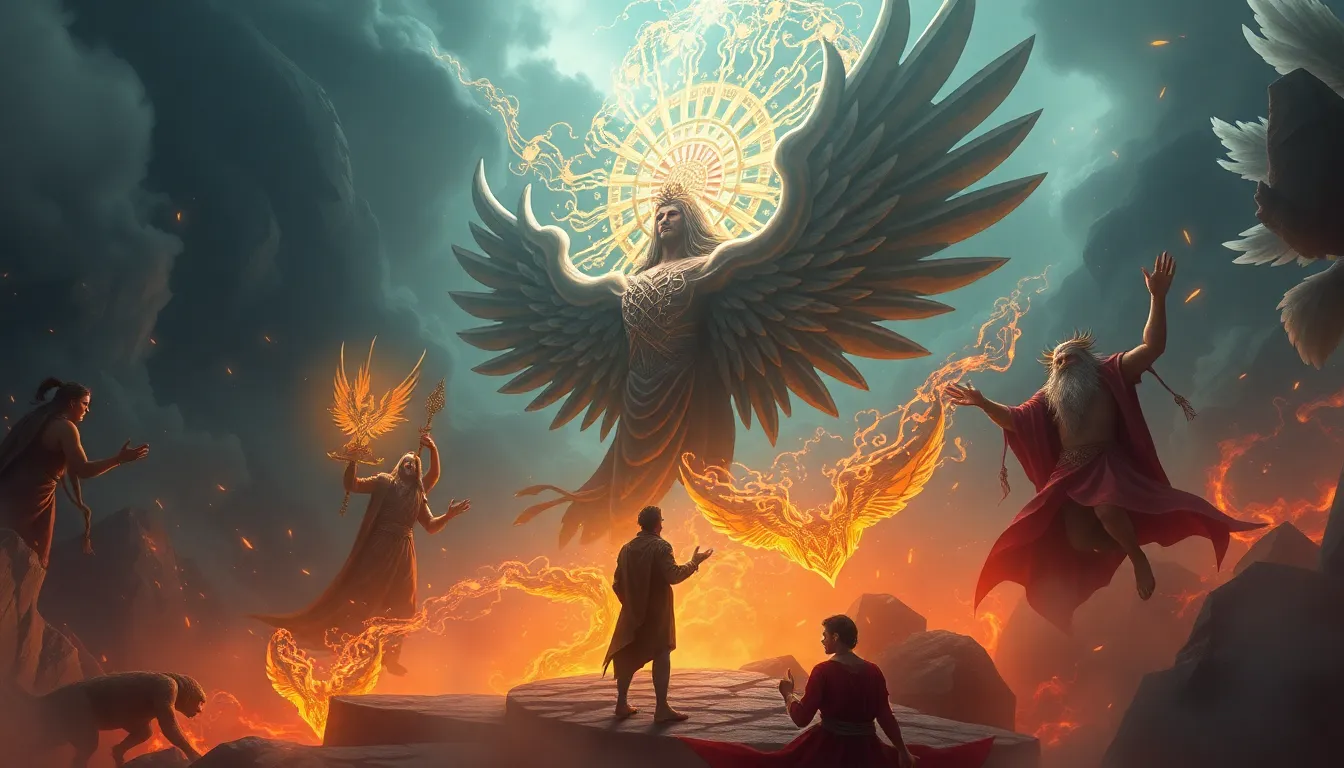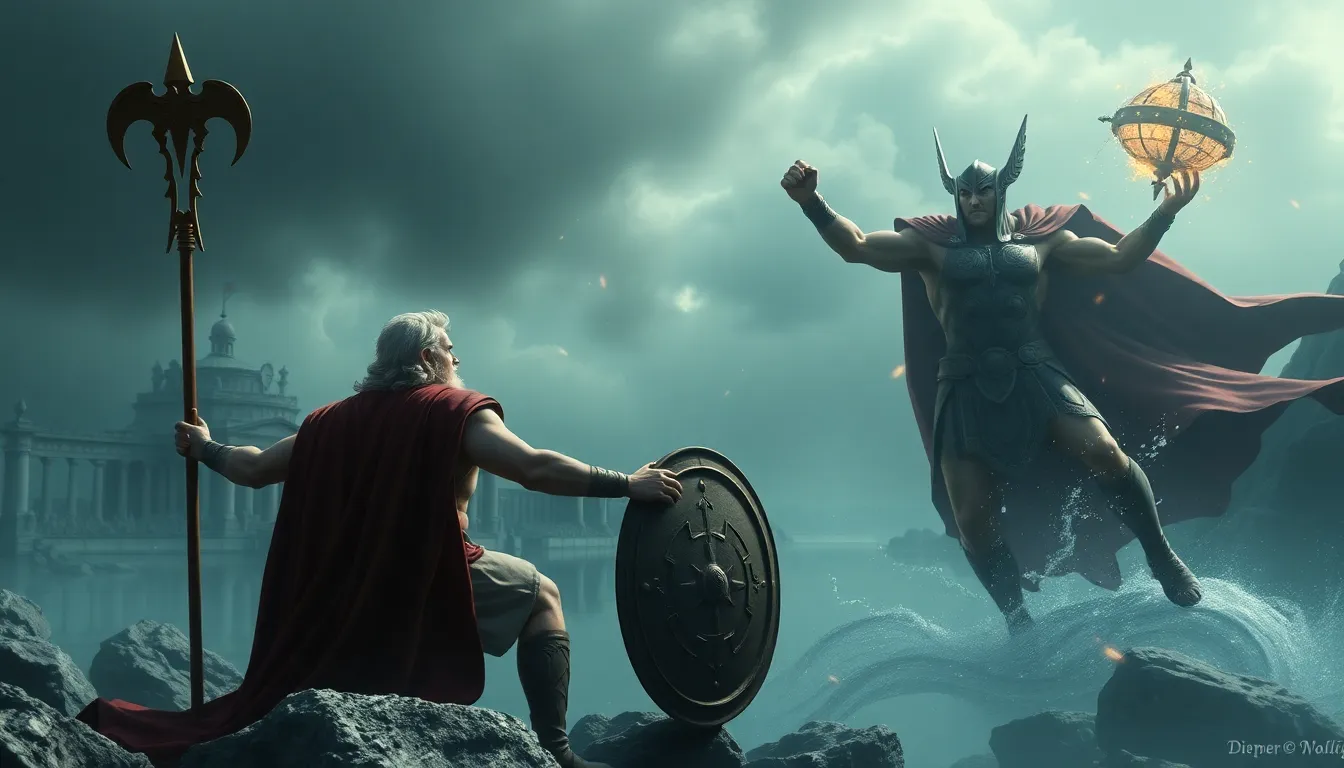The Ultimate Divine Trials: What Gods Demand from Mortals
I. Introduction
Divine trials are tests imposed by gods upon mortals, often designed to assess their character, resolve, and moral integrity. Throughout history, these trials have served as a reflection of divine expectations and have played a crucial role in shaping the moral and ethical frameworks of various cultures.
Understanding divine trials is essential as they reveal the values that societies hold dear and the characteristics that are deemed worthy of admiration and emulation. This article will explore the concept of divine trials, examining their historical contexts, common themes, and modern interpretations, ultimately revealing the profound impact they have on human life.
II. Historical Perspectives on Divine Trials
From the ancient Egyptians to the Greeks, civilizations have depicted divine trials in their mythology and religious practices. Each culture has portrayed its gods as demanding certain virtues from humanity, often testing mortals through trials that reflect the characteristics of these deities.
- Ancient Civilizations and Their Gods: Many ancient societies believed that their gods intervened in human affairs, often through trials that tested faith, bravery, and wisdom.
- Comparative Analysis of Divine Trials Across Cultures: Despite the diversity of beliefs, common themes such as sacrifice, courage, and the quest for knowledge emerge in the narratives surrounding divine trials.
- The Evolution of Divine Expectations Over Time: As societies evolved, so did their perceptions of divine trials, reflecting changing values and moral standards.
III. Common Themes in Divine Trials
While divine trials vary greatly across cultures, several themes consistently appear:
- Courage and Bravery: Many divine tests challenge individuals to confront their fears, showcasing the importance of bravery in the face of adversity.
- Sacrifice and Selflessness: Trials often demand self-sacrifice, highlighting the value of putting others before oneself.
- Pursuit of Wisdom and Knowledge: Many trials encourage seekers to gain wisdom and understanding, reinforcing the belief that knowledge is a divine gift.
IV. Case Studies of Divine Trials in Mythology
Various mythologies provide rich narratives of divine trials, illustrating the expectations of gods and the responses of mortals:
- Greek Mythology: Hercules is famous for his Twelve Labors, a series of challenges that tested his strength, wit, and courage.
- Norse Mythology: The trials of Thor and Loki often involved themes of loyalty, strength, and the consequences of trickery.
- Hindu Mythology: Arjuna’s challenges in the Mahabharata reflect the moral dilemmas faced by warriors, emphasizing the struggle between duty and righteousness.
V. Modern Interpretations of Divine Trials
In contemporary literature and media, the concept of divine trials continues to resonate:
- Influence in Literature: Many modern stories draw on the archetype of the hero’s journey, where the protagonist faces trials that lead to personal growth.
- Psychological Aspects: Facing trials can be seen as a metaphor for personal struggles, reflecting the internal battles individuals encounter in their lives.
- Relevance in Ethical Dilemmas: Ancient trials often mirror today’s ethical challenges, encouraging individuals to engage with moral questions in their own lives.
VI. The Role of Faith and Belief in Divine Trials
Faith plays a pivotal role in how mortals experience divine trials:
- Faith Shapes Experience: Belief in a higher power can provide strength and comfort during challenging times.
- Impact of Belief Systems: Different religious and spiritual beliefs influence how individuals respond to trials and the values they prioritize.
- Stories of Faith: Many accounts illustrate how faith has served as a source of resilience, guiding individuals through their trials.
VII. Divine Trials and Personal Transformation
Divine trials often lead to significant personal transformation:
- Spiritual Growth: Many individuals emerge from their trials with a deeper understanding of themselves and their place in the world.
- Redemption Through Suffering: The concept of suffering as a pathway to redemption is prevalent, illustrating how challenges can lead to personal evolution.
- Personal Testimonies: Numerous stories highlight how individuals have overcome their trials, sharing insights gained from their experiences.
VIII. The Consequences of Failing Divine Trials
The failure to meet divine expectations can have significant repercussions:
- Myths of Divine Retribution: Many cultures have stories that depict the consequences of failing divine trials, often resulting in punishment or misfortune.
- Psychological Impact: The failure to overcome trials can lead to feelings of inadequacy, shame, or despair.
- Lessons from Failure: Despite the negative consequences, failed trials often provide valuable lessons that contribute to personal growth.
IX. Preparing for Divine Trials: A Mortal’s Guide
As mortals, we can prepare for the inevitable trials we may face:
- Cultivating Virtues: Developing qualities such as courage, compassion, and wisdom aligns with the values sought by divine forces.
- Strategies for Resilience: Building mental and emotional resilience can help individuals navigate challenges more effectively.
- Importance of Community: Support from family, friends, and community can provide guidance and strength during difficult times.
X. Conclusion
Divine trials serve as a significant aspect of the human experience, offering insights into the virtues that gods demand from mortals. Embracing these challenges can lead to profound personal growth and a deeper understanding of one’s place in the universe.
As we face our trials, let us remember that they are not merely obstacles but opportunities for transformation and development. The relationship between gods and mortals is a complex one, enriched by the trials we endure and the lessons we learn along the way.



